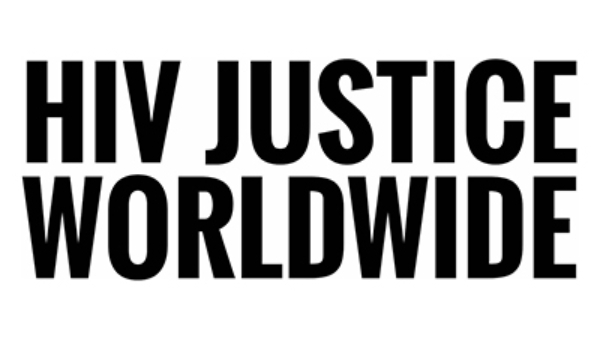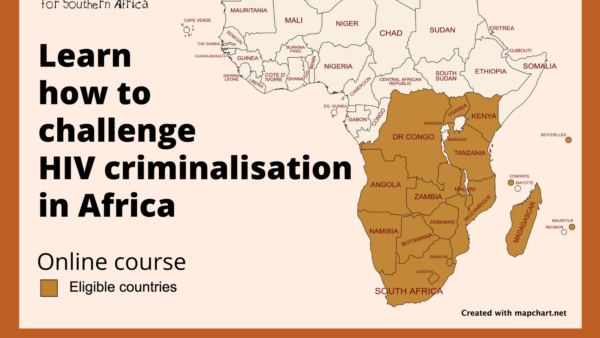Overview
People living with HIV are liable to criminalisation for non-disclosure under both the Penal Code 2010 and Sexual Offences Act 2003. The latter law established a mandatory death penalty as a punishment for non-disclosure, but this was subject to litigation in 2022 which resulted in this penalty no longer being compulsory.
Both laws criminalise non-disclosure of HIV status prior to sexual acts, which are defined broadly in both statutes to include a range of sexual acts from penetrative sex to sexual touching, and even ‘display’ of genitals.
Section 52 of the Penal Code states that anyone who is aware of, or has reason to believe, that they are living with HIV, an STI, or ‘another life-threatening disease’ who does not disclose this prior to sex commits an ‘unlawful sexual act’. The Code does not appear to set out a penalty for this offence.
Section 3 of the Sexual Offences Act similarly makes a sexual act an offence if committed under ‘coercive circumstances’, which includes if the person does not disclose that they are living with an STI or ‘other life-threatening disease’. This offence is generally punishable with a minimum of ten years’ imprisonment under section 32 of the Sexual Offences Act, even if the person is unaware of their HIV status, however anyone found to have knowledge or suspicion of their status and did not disclose this can be punished with the death penalty. Section 30 states that anyone charged with an offence involving a vaginal or anal penetrative sexual act shall have their blood taken and tested for HIV, the results of which are tendered as evidence in sentencing.
This severe penalty made Lesotho one of few countries to impose the death penalty for HIV non-disclosure and became the subject of a constitutional challenge in a case decided in October 2022. In the case a man living with HIV was convicted of a ‘sexual offence’ under the Sexual Offences Act (the facts of the case were not specified) and was due to be sentenced under section 32 Sexual Offences Act, but the trial court referred the case for constitutional consideration in light of the severe penalty stipulated. The applicant then challenged the law as violative of his constitutional rights to life, freedom from inhuman treatment, a fair trial, private life, equality before the law and equal protection of the law.
The High Court ruled that a mandatory death sentence under section 32 was unconstitutional as it amounted to unfair discrimination by impeding the constitutional rights to equality before the law and equal protection of the law, and freedom from inhuman treatment, of people living with HIV. It further ruled that there was no lawful justification for this, as medical advances meant that HIV was no longer a ‘death sentence’. Notably however, the Court found that section 31 of the Sexual Offences Act grants trial courts discretionary powers in sentencing, which despite the wording of the text, means that section 32 should not be read as requiring a mandatory death sentence in cases where the person was knowingly living with HIV. Instead, courts should consider all extenuating circumstances when determining a sentence. The case was referred back to the trail court for sentencing.
The result of this ruling is to interpret the law not to require a mandatory death sentence in cases of HIV non-disclosure, but it does not preclude the penalty from being imposed if deemed appropriate. In practice this means that it would not be constitutional to impose a death penalty solely on the basis of HIV status, and the court would need to reach an appropriate sentence based on the specific facts of the case. Although a hugely important legal development in narrowing HIV criminalisation in Lesotho, the law continues to consider HIV non-disclosure a sexual offence regardless of individual circumstances, for example viral suppression or use of condoms, and imposes severe punishments ranging from ten years’ imprisonment up to the death penalty.
Laws
Penal Code Act 2010
52. Unlawful sexual act
(1) A person who has unlawful sexual act with another person, or causes another person to commit an unlawful sexual act, commits an offence.
(2) A sexual act is unlawful if committed under the following circumstances:
(…)
(i) a perpetrator, knowing or having reasonable grounds to believe that he or she is infected with a sexually transmittable disease, the human immunodeficiency virus or other life-threatening disease, does not, before committing the sexual act, disclose to the complainant that he or she is so infected.
Sexual Offences Act 2003
2. Interpretation
In this Act, unless the context otherwise requires –
“coercive circumstances” include but are not limited to any circumstances where –
(…)
(i) a perpetrator knowing or having reasonable grounds to believe that he/she is infected with a sexually transmittable disease, the human-immunodeficiency virus or other life-threatening disease does not, before committing the sexual act, disclose to the complainant that he/she is so infected;
(…)
3. Unlawful sexual act
(1) For the purposes of this Act, a sexual act is prima facie unlawful if it takes place in any coercive circumstances.
(2) A person who commits an unlawful sexual act with another person, or causes another person to commit an unlawful sexual act commits an offence.
(3) Marriage or any other relationship shall not be a defence against this charge under this Act where it is shown that:
(…)
(b) the accused spouse or partner had or was reasonably suspected to have sexually transmitted disease or other life threatening disease;
30. Compulsory Human Immunodeficiency Virus (HIV) Test
(1) A person charged with a sexual act involving the insertion of a sexual organ into another person’s sexual organ or anus, shall have his blood substance taken by a medical practitioner within a week of the preferment of the charge.
(2) The blood substance referred to in subsection (1) shall be tested for Human Immunodeficiency Virus infection and the results shall be disclosed by the medical practitioner to the accused and the complainant only.
(3) The costs for the test referred to in subsection (2) shall be borne by the Crown.
(4) Where a conviction is secured, the results of the test done pursuant to subsection (3) shall be tendered in evidence for the purposes of sentence.
32. First and second or subsequent conviction
A person who is convicted of an offence of a sexual nature shall, subject to the provisions of section 31, be liable –
(a) in the case of first conviction –
(…)
(iv) where the convicted person is infected with human immunodeficiency virus or other life threatening disease but at the time of the offence had no knowledge or reasonable suspicion of the infection, to imprisonment for a period of not less than ten years;
(…)
(vii) where a person is infected with the human immunodeficiency virus and at the time of the commission of the offence the person had knowledge or reasonable suspicion of the infection, to the death penalty.
Further resources
The HIV and AIDS Legal Environment Assessment report presents the review of laws and policies in the country and how they are infringing on people’s rights and their access to services. It explores and suggests recommendations for creating and strengthening an enabling environment that promotes an effective national HIV response in accordance with the National Strategic Framework for HIV and AIDS and sexually transmitted infections (STIs) 2012/13- 2015/16 in Lesotho
Acknowledgements
Our thanks to UNAIDS for their research assistance to confirm current relevant legislation.
HIV Justice Network's Positive Destinations
Visit the Lesotho page on Positive Destinations for information on regulations that restrict entry, stay, and residency based on HIV-positive status, as well as access to HIV treatment for non-nationals.

